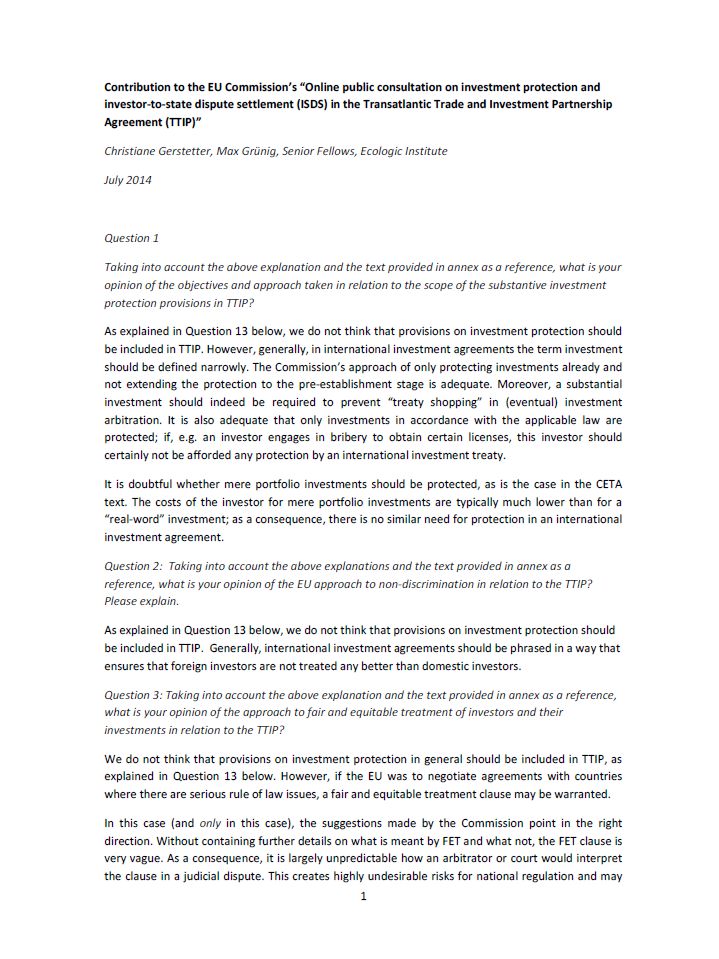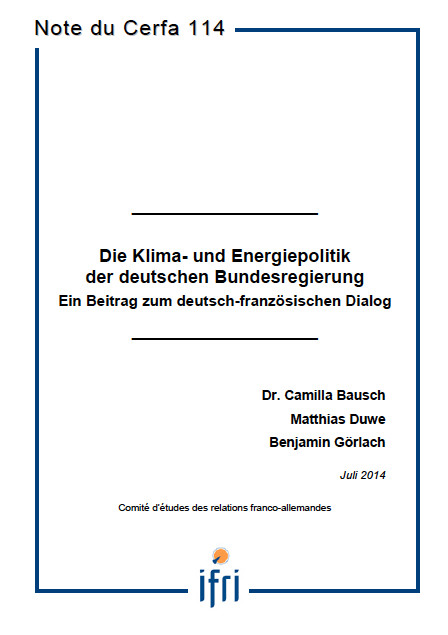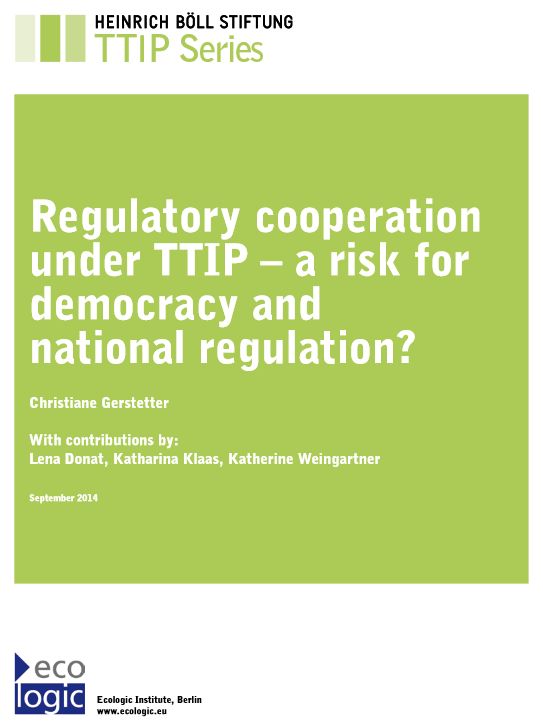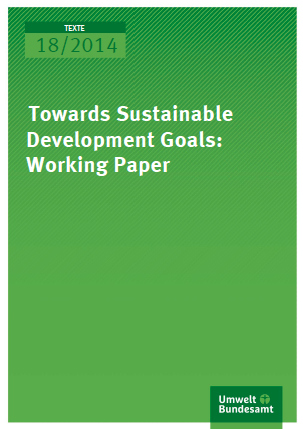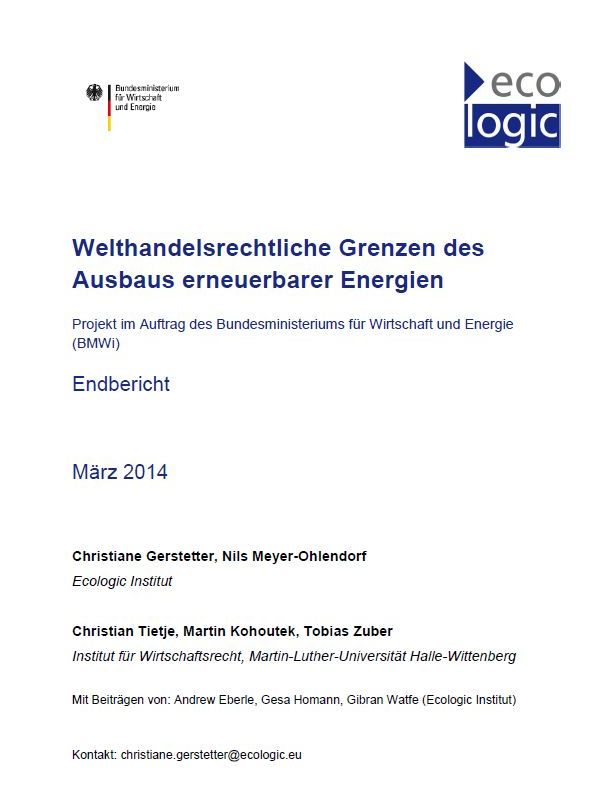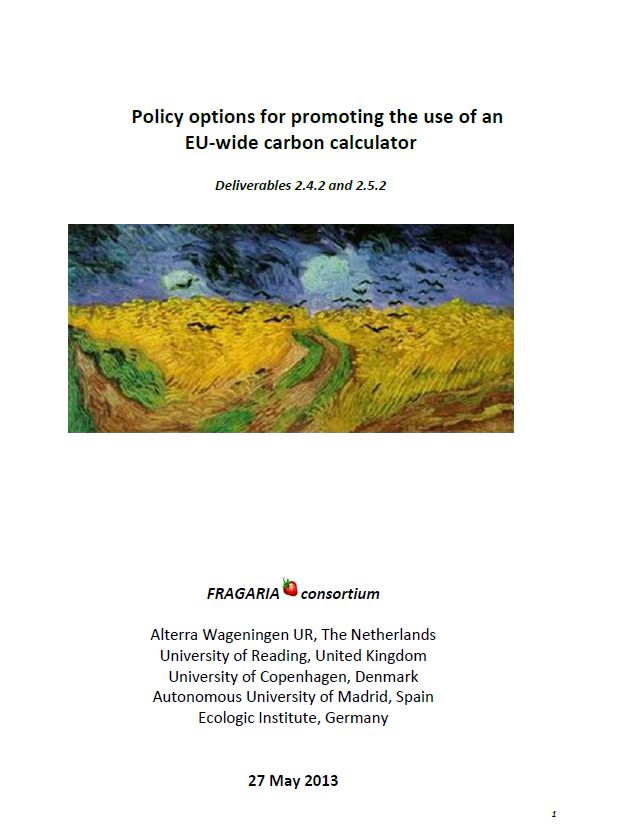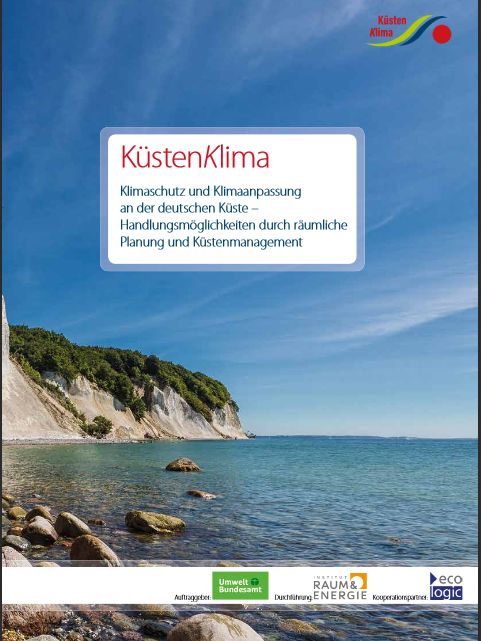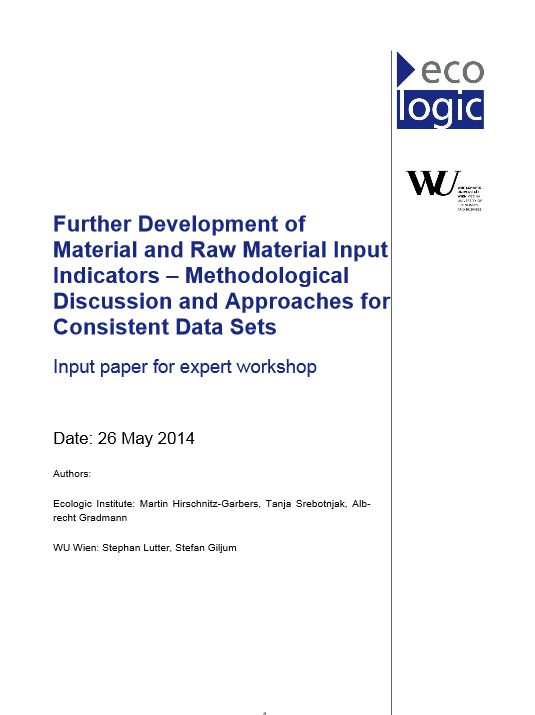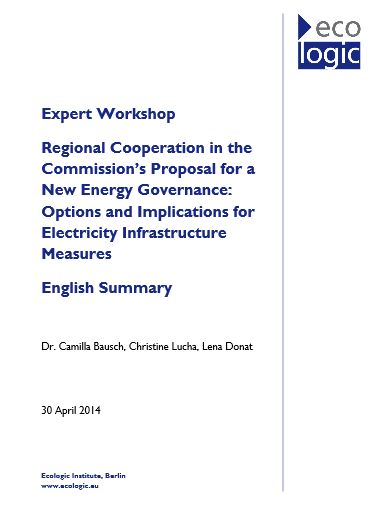Publication:Document
Publication:Report
Die Klima- und Energiepolitik der deutschen Bundesregierung
Ein Beitrag zum deutsch-französischen Dialog
Year
Read morePublication:Report
Publication:Report
Publication:Report
Project:FP 7
Presentation:Lecture
Publication:Report
Policy Options for Promoting the Use of an EU-wide Carbon Calculator
Deliverables 2.4.2 and 2.5.2
Year
Read morePublication:Report
KüstenKlima
Klimaschutz und Klimaanpassung an der deutschen Küste – Handlungsmöglichkeiten durch räumliche Planung und Küstenmanagement
Year
Read morePublication:Conference Paper
Further Development of Material and Raw Material Input Indicators
Methodological Discussion and Approaches for Consistent Data Sets
Year
Read morePublication:Conference Paper
Regional Cooperation in the Commission's Proposal for a New Energy Governance
Options and Implications for Electricity Infrastructure Measures
Year
Read more